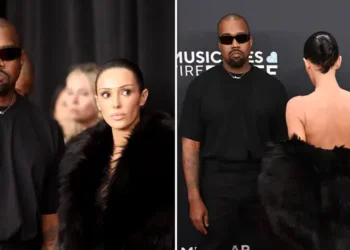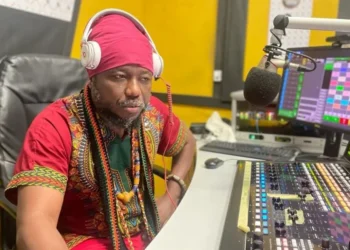The Ghana music industry has a rich history and is characterized by vibrant genres such as Highlife, Hiplife, Afrobeats, and Gospel music.
Despite its potential for global influence and economic contribution, the industry faces several challenges that hinder its growth.
Ego and pride among artists, producers, and stakeholders play a significant role in these challenges in Ghana’s music industry.
Ghanaian Afrobeat artist, Camidoh recently took to social media to express his concerns about the challenges facing Ghana’s music industry.
In a series of tweets, Camidoh highlighted the key issue, stating that the industry is plagued by pride and egos, which hinder collaboration among artists.
He emphasized that instead of focusing on competition, there should be a unified effort to move Ghana’s music industry forward.
He also urged for a more strategic approach to branding and packaging music, suggesting that a well-curated image could attract the attention of the corporate world.
Calling for more professionalism in the industry to drive growth, he wrote, “Let’s brand and package the art better and see if the corporate world won’t pull up.”
Pride is often seen as a virtue in many African cultures, including Ghana. Artists take immense pride in their work, heritage, and achievements.
However, this pride morphs into ego when individuals become overly focused on their self-importance. Ego manifests as a reluctance to collaborate, share opportunities, or acknowledge the contributions of others.
In a competitive industry like music, where collaboration leads to innovation and success, this ego is detrimental.

The most significant barrier to growth in Ghana’s music industry is the lack of collaboration among artists. Many musicians prefer to work solo rather than engage in joint projects that amplify their reach and impact.
This reluctance stems from a fear of losing individuality or being overshadowed by a more prominent artist. The result is a fragmented music scene where artists miss opportunities to blend their styles, share audiences, and create unique sounds.
Camidoh proposed the idea of artists collaborating on tours and working together to create a stronger presence both locally and internationally.
He expressed his frustration with the stagnation in the industry, stating, “There has to be a solution to this dullness in Ghana Music Industry,” urging for collective action to bring about change.
Collaborative projects, such as features or joint albums, are crucial for broadening an artist’s appeal and tapping into new markets.
However, the competitive nature fueled by ego often leads to missed opportunities. For instance, collaborations between established artists and emerging talents could pave the way for fresh sounds and innovation, yet they are often stifled by pride.
Many artists and producers cling to traditional methods of music production and promotion, fearing that new approaches undermine their established identities.
This resistance stifles innovation, preventing the industry from evolving and adapting to global trends.
For example, the rise of digital platforms has transformed how music is consumed and distributed. However, some stakeholders in Ghana’s music industry have been slow to embrace these changes, preferring traditional methods that are no longer effective.
This reluctance not only limits artists’ exposure but also hinders the industry’s ability to compete on a global scale.
The ego-driven nature of the industry also affects audience engagement. Fans are often drawn to authenticity and collaboration.
When artists are perceived as overly prideful or unwilling to work with others, it alienates their audience.
Fans prefer artists who show humility and a willingness to collaborate, as these traits resonate with the communal values often found in Ghanaian culture.
Embracing Humility, Collaboration in Ghana’s Music Industry

To overcome the challenges posed by ego and pride, stakeholders in Ghana’s music industry must embrace humility and a spirit of collaboration.
Industry stakeholders should actively encourage and facilitate collaborations between artists. This could include organizing joint concerts, collaborative albums, or even mentorship programs where established artists support emerging talent.
Creating platforms for open dialogue among artists, producers, and managers helps address issues of ego and pride in Ghana’s music industry.
Forums, workshops, and conferences provide opportunities for stakeholders to share experiences, discuss challenges, and find common ground.
The industry should celebrate and promote a diverse range of musical styles and collaborations. Highlighting the importance of different genres and influences encourages artists to step outside their comfort zones and work with others.
Music education programs that emphasize the value of collaboration, humility, and teamwork help cultivate a new generation of artists who prioritize collective growth over individual ego.
Embracing digital platforms for distribution and promotion helps artists reach broader audiences. By collaborating on these platforms, artists create unique content that attracts fans and enhances their visibility.
Ego and pride are significant barriers to the growth of Ghana’s music industry. As the world becomes increasingly interconnected, the ability to work together and embrace diversity will be crucial for the success of Ghana’s music scene.
Embracing humility and collaboration not only benefits individual artists but also paves the way for a more vibrant and successful music industry as a whole.
READ ALSO: Reputational Risk Concerns Over BoG’s Asiamah Dismissed





















